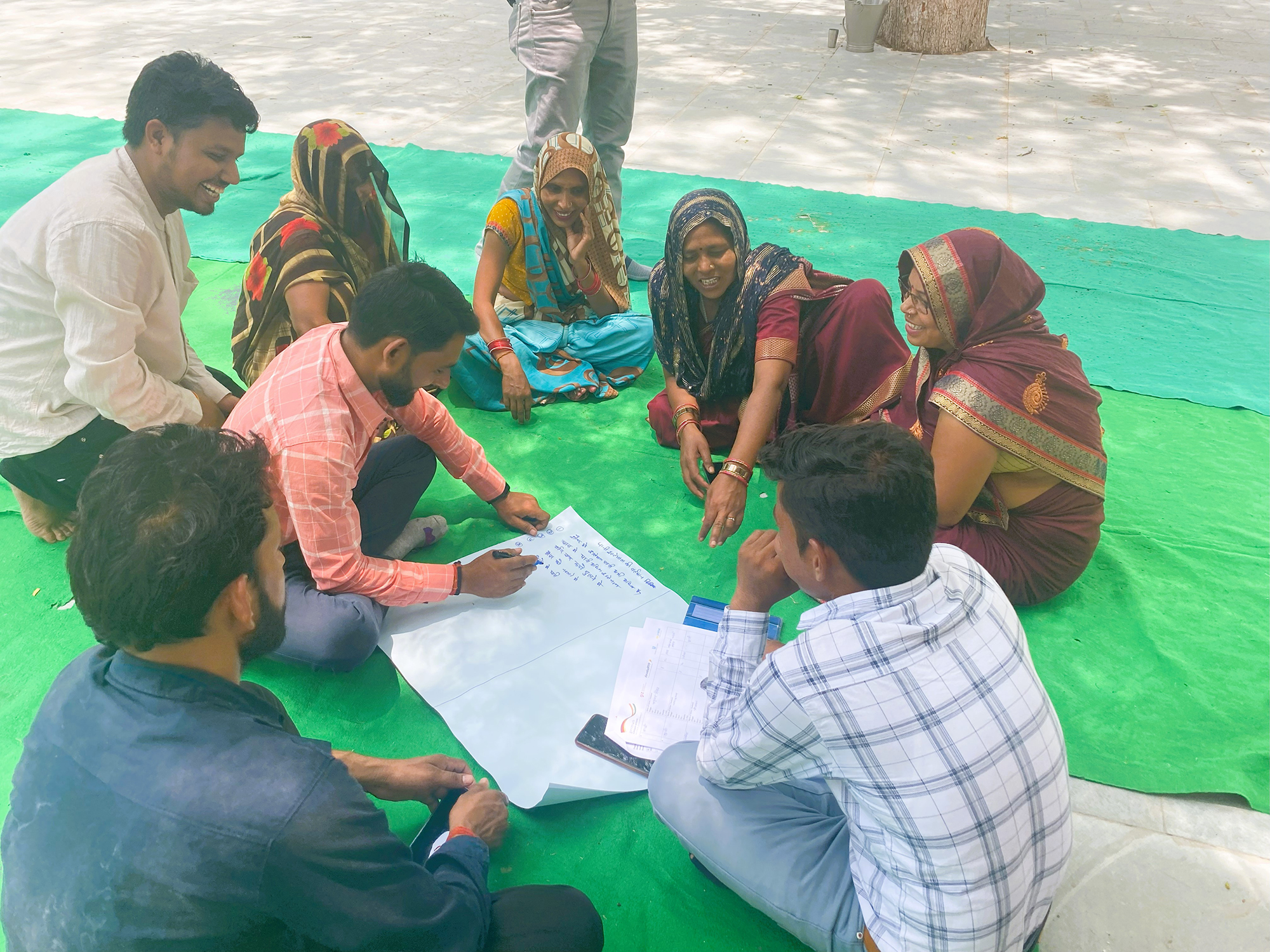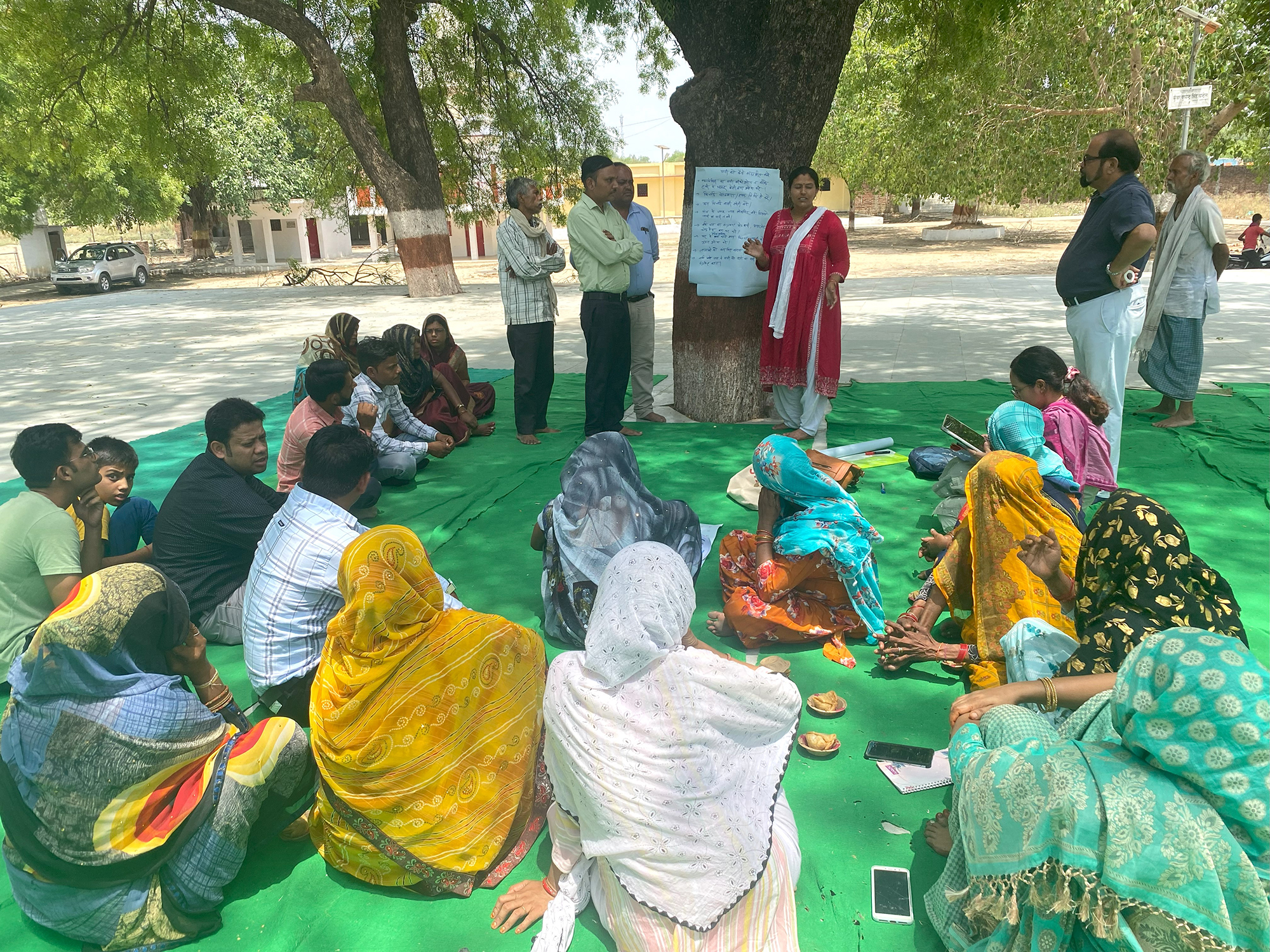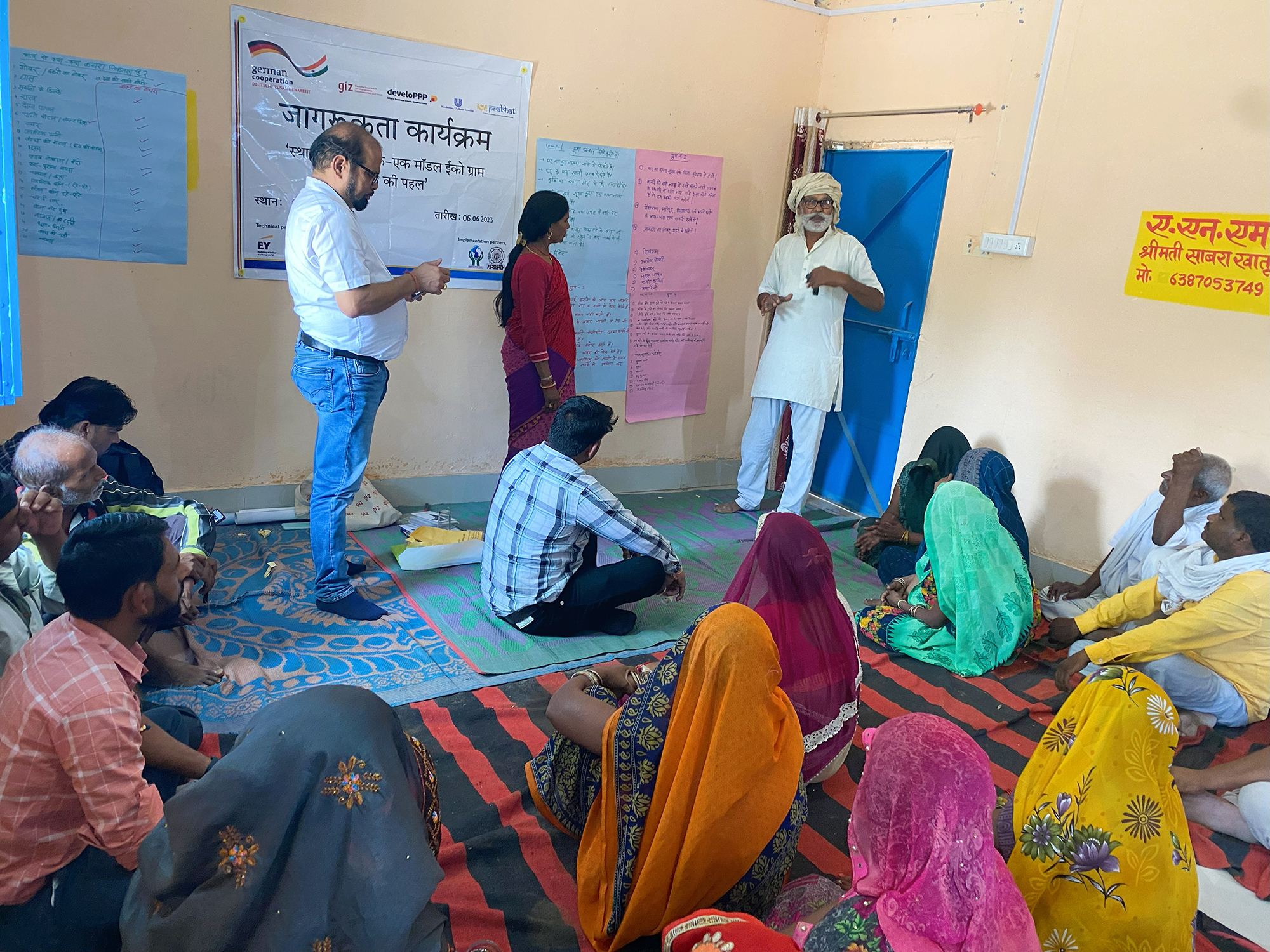Have a question? Mail us at ccce.india@giz.de
The German Federal Ministry of Economic Cooperation and Development (BMZ)
January, 2022 - January, 2025
Uttar Pradesh, Punjab
The population in the districts of Hamirpur (Uttar Pradesh) and Patiala (Punjab) profit from improved socio-ecological conditions.
India’s water and waste management status is grim and predicts a grave crisis in the country, with greater negative impacts on its poor and marginalised people. Punjab and Uttar Pradesh both rank poorly for overexploiting groundwater resources as per a report published by the NITI Aayog. On similar lines, the problem of waste management looms large in urban and rural areas alike, with more strain on rural local bodies with limited resources to collect and manage household waste. The wet waste fraction can be a consequent health hazard and the plastic waste poses environmental challenges resulting from improper disposal in landfill sites. At the same time, being predominantly agrarian states, both UP and Punjab, show trends of unregulated use of water and energy resources increasing their carbon footprint.
The project titled ‘From Local to Global- Creating a Model for Eco-villages’ is a Public-Private Partnership project between GIZ and HUL. The purpose of this project is to design an integrated approach on village and site level by adopting an overarching development framework and thereby contributing to Sustainable Development Goals (SDG) on local level. This partnership aims for sustainable and inclusive community/ village(s) development around one key HUL site in Hamirpur district (UP) and two in Patiala district (Punjab) of India in order to achieve water positive, zero waste to landfill status of communities and to reduce carbon footprints outside the boundaries of the HUL factories. Based on a shared responsibility approach, a workable model of eco-villages will be created. The project will improve the living conditions of around 3,600 households (approx. 11,200 people) in 4 villages prioritising the poor and marginalised families. This integrated ecosystem approach results in the sharing of data between relevant stakeholders (community, local government, NGOs, community-based organisations, government agencies etc.), encourage policy learning related to best practices and address innovative solutions to common problems.
 Capturing the spirit of communal learning through a water conservation awareness drive at Ingohota Village, Hamirpur district, UP.) (©GIZIndia/NAME)
Capturing the spirit of communal learning through a water conservation awareness drive at Ingohota Village, Hamirpur district, UP.) (©GIZIndia/NAME)
 Empowering the community through knowledge-sharing on effective water preservation methods. A snapshot from an awareness programme held at Ingohota Village, Hamirpur district, UP. (©GIZIndia/NAME)
Empowering the community through knowledge-sharing on effective water preservation methods. A snapshot from an awareness programme held at Ingohota Village, Hamirpur district, UP. (©GIZIndia/NAME)
 Fostering waste management literacy among Gram Sabha members. An impactful session highlighting the significance of waste segregation, held in Banki village, Hamirpur district, UP. (©GIZIndia/NAME)
Fostering waste management literacy among Gram Sabha members. An impactful session highlighting the significance of waste segregation, held in Banki village, Hamirpur district, UP. (©GIZIndia/NAME)
2023 Climate Change and Circular Economy. All Rights Reserved.
Site By -